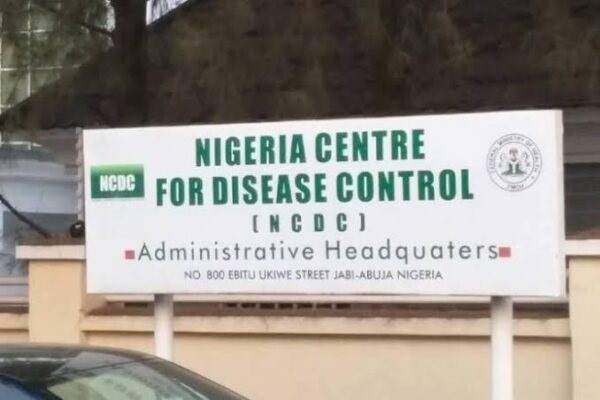The Federal Government has launched Project 365, a year-long, community-driven national campaign aimed at eliminating hepatitis B and C by 2030, citing annual economic losses estimated between ₦10.3 trillion and ₦17.9 trillion due to the disease.
Coordinating Minister of Health and Social Welfare, Prof. Muhammad Pate, unveiled the initiative in Abuja during the commemoration of World Hepatitis Day 2025, themed: “Hepatitis Can’t Wait – Test. Treat. Eliminate.”
Represented by Dr. Godwin Ntadom, Director of Public Health, Pate said Project 365 will prioritise mass screening, treatment, and vaccination across all communities, especially underserved and high-risk populations.
“An estimated 18.2 million Nigerians are living with hepatitis B, and another 2.5 million have hepatitis C,” Pate said. “The disease’s silent nature—often misdiagnosed as malaria—delays detection and increases mortality.”
Strategic Plan and Reforms
As part of the national elimination strategy, the government established the Viral Elimination Fund (VEL) to scale up access to testing and treatment, reduce transmission, and make care more affordable.
Pilot screening and treatment programmes have commenced at three correctional centres in Gombe State, with support from diagnostic firm Abbott and other global partners. Additionally, free hepatitis testing has been introduced at the National Assembly, encouraging lawmakers to support funding for the initiative.
Project 365 also includes tax incentives and regulatory reforms to stimulate local production of hepatitis test kits and medications, reducing dependence on imports.
Pate said the initiative aligns with Sustainable Development Goal 3 and the WHO Global Health Sector Strategy, reaffirming Nigeria’s commitment to global health standards.
Nationwide and Institutional Support
Delivering a goodwill message on behalf of former Head of State and Presidential Ambassador for Viral Hepatitis, Gen. Yakubu Gowon (rtd), Mr. Adeyeye Ajayi, Country Representative of the Gowon Foundation, urged Nigerians to unite against hepatitis.
He praised the Federal Ministry of Health, WHO, and healthcare workers for their ongoing efforts, and stressed the importance of public education to combat stigma and misinformation.
Dr. Titilola Munkail, National Coordinator at Africa CDC, represented by Dr. Oluyinka Olayemi, expressed confidence in Nigeria’s ability to lead hepatitis elimination efforts across Africa. She reaffirmed Africa CDC’s full support for the campaign.
WHO Team Lead for Communicable and Non-Communicable Diseases, Dr. Mya Ngon, commended Nigeria’s progress and pledged continued WHO support for expanding testing, vaccination, and treatment access.
“Challenges remain, but we acknowledge the strides in reducing treatment costs and promoting local drug manufacturing,” Ngon said.
Focus on Correctional Centres and Vulnerable Populations
Dr. Ibrahim Ehizogie, who represented the Nigerian Correctional Service (NCoS), reaffirmed the service’s commitment to combating hepatitis in custodial centres. He revealed that since December 2024, 830 inmates have been screened at the Kuje Medium Security Custodial Centre, with plans underway to expand coverage across all 300 correctional facilities nationwide.
“Addressing hepatitis in prisons is essential to achieving total elimination due to elevated transmission risks in such environments,” he added.
Nationwide Constituency Outreach and Funding Model
Dr. Adebola Bashorun, National Coordinator of the National HIV/AIDS, Viral Hepatitis, and STIs Control Programme (NASCP), said the campaign will run daily for 365 days, reaching all 360 federal constituencies with testing, treatment, and vaccination.
He said Nigeria’s viral hepatitis prevalence stands at 8.4 per cent, with hepatitis B at 8.1 per cent and hepatitis C at 1.21 per cent, affecting over 21 million Nigerians.
“Those who test positive for hepatitis C will receive curative treatment, while hepatitis B-negative individuals will be vaccinated,” Bashorun said. “This is Day One. We will keep the momentum going until the next World Hepatitis Day.”
He also noted that 1.21 per cent of HIV-positive Nigerians live with hepatitis B, requiring integrated disease management.
To ensure sustainability, Bashorun explained that the World Hepatitis Fund will be integrated into a broader Sector-Wide Approach (SWAp) managed by the Ministry of Health and funded through the Basic Healthcare Provision Fund (BHCPF).
“This unified funding model will allow for scalable and responsive interventions nationwide,” he said.
The 2025 World Hepatitis Day theme reinforces the urgency of increasing access to testing, treatment, and education in order to meet the WHO target of eliminating viral hepatitis as a public health threat by 2030.





